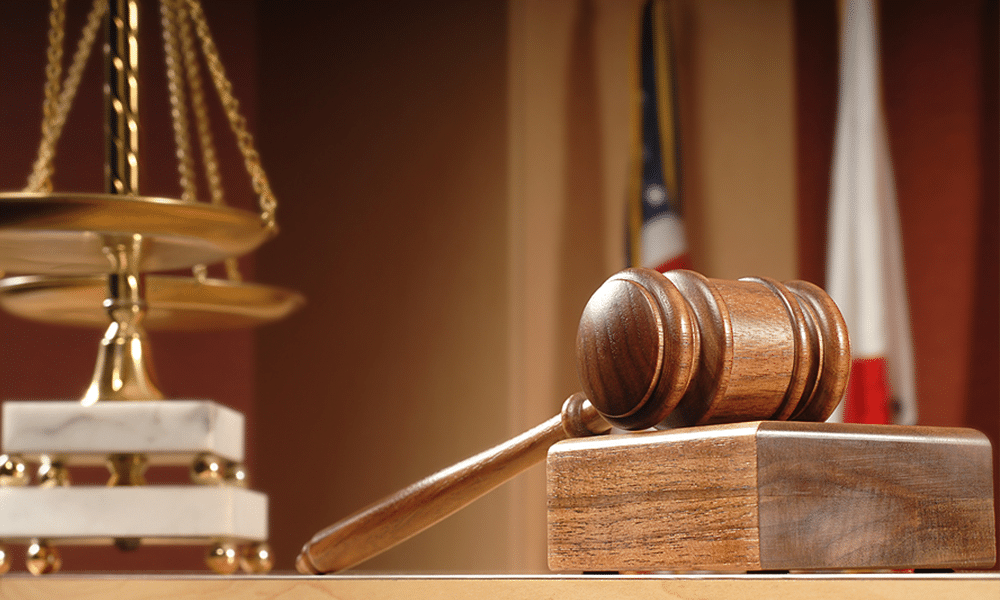Ground Breaking Decision in Federal Appeals Court Protects Whistleblowers and Civil Rights Plaintiffs from Excessive Court Costs

U.S Court of Appeals for the D.C. Circuit Limits E-Discovery Costs in Qui Tam False Claims Act Case
Today, the United States Court of Appeals for the District of Columbia Circuit (D.C. Circuit) reversed an order that had required a qui tam whistleblower to pay over $58,000 in e-discovery court costs to the multinational defense contractor KBR. The decision, which sets a precedent for all civil litigation, blocks defendants from billing whistleblowers and other plaintiffs for e-discovery costs.
In a case arising under the False Claims Act qui tam whistleblower law, U.S. ex rel. Harry Barko v. KBR et al., the D.C. Circuit barred defendants from forcing plaintiffs to pay tens of thousands of dollars in “e-discovery” costs billed by large corporate defense law firms in civil rights, employment, and whistleblower cases.
In the unanimous decision, Circuit Judge Tatel ruled “Congress ‘allowed only for the taxation of the costs of making copies.” And held that “identifying stacks of potentially relevant materials, culling those materials for documents containing specific keywords, screening those culled documents for potential privilege issues, Bates-stamping each screened document, and mailing discovery materials to opposing counsel” are “untaxable now.”
“This is a historic ruling that applies not only to qui tam plaintiffs, but to every civil rights and employment case filed,” said Michael D. Kohn, lead counsel for the whistleblower Harry Barko. “KBR and other major corporations have tried to use the threat of e-discovery cost to force meritorious cases from being filed and scaring off plaintiffs from initiating law suits. The fear of e-discovery costs was an unnecessary roadblock to the access to federal courts.”
“If plaintiffs were required to pay defendants costs incurred for e-discovery, a simple wrongful discharge case could trigger thousands of dollars in court costs if the plaintiff did not prevail. This burden would have a chilling effect on the willingness of whistleblowers and victims of civil rights abuses to bring cases in federal court. Today’s ruling puts an end to this dangerous practice and ensures that federal courts will remain open to the rich and the poor,” Kohn added.
Todd Yoder, associate attorney with the qui tam whistleblower law firm of Kohn, Kohn and Colapinto, argued the case. Mr. Yoder, who also represented the whistleblower in the lower court, said: “I am extremely relieved that this turmoil is over for Harry Barko. No whistleblower should have to face the emotional, psychological, and financial strain of falling into severe debt or even bankruptcy, simply for trying to report fraud against the United States.”
Stephen M. Kohn, the Chairman of the Board of Directors of the National Whistleblower Center, stated: “The NWC fully supported this appeal. We recognized that the lower court decision requiring the whistleblower to pay over $58,000 in e-discovery costs would set a disastrous precedent for all whistleblowers. Employees could face bankruptcy by merely filing a whistleblower case in federal court. No rank-and-file worker can risk being billed unlimited costs to cover the excessive legal fees paid by large corporations seeking to silence whistleblowers.”
The case U.S. ex rel. Harry Barko v. KBR et al., was initially filed in 2005, and alleged that the then Halliburton subsidiary KBR worked with its Jordanian subcontractor, Daoud and Partners, and fraudulently billed the government tens of millions of dollars in illegal construction activity during the Iraq War. The district court ordered KBR to produce discovery documents to the Court in camera (i.e., privately in juridical chambers) and after reviewing those documents concluded that:
“Daoud paid off KBR employees and KBR employees steered business to Daoud.”
KBR continually awarded contracts to Daoud despite Daoud’s “terrible completion performance” and “regular attempts to double bill.”
KBR’s investigator found Daoud “received preferential treatment.”
A quality assurance employee described: “D&P does very sub-standard work and have to be stood over every minute and watched. In most cases, KBR has had to step in and finish the work as outlined in the contract.
In a setback to transparency, the U.S. Court of Appeals reversed this order. That decision, written by now Supreme Court Justice Brett Kavanaugh, allowed KBR to hide unlawful and illegal behavior carried out by an in-house lawyer behind the attorney-client privilege.
KBR was ultimately forced to pay a $130,000 fine by the Securities and Exchange Commission (“SEC”) for its unlawful attempt to silence its workforce from revealing the truth about the fraud schemes qui tam whistleblowers saw in the workplace. “The silver lining to the Barko case is that qui tam whistleblowers can no longer be gagged by restrictive non-disclosure agreements (“NDAs”)” said Michael Kohn. “The order by the SEC, which barred the use of NDAs, was precedent-setting and now applies to all SEC-regulated entities.
Read the opinion: United States of America, ex rel. Harry Barko, Appellant v. Halliburton Company, et al., Appellees, Decided March 27, 2020
Read the orders:
– United States of America, ex rel. Harry Barko, Appellant v. Halliburton Company, et al., Appellees, March 27, 2020, Appeal from the United States District Court for the District of Columbia
– SEC Enforcement Action Against KBR for Non-Disclosure Agreements
Latest News & Insights
February 24, 2026
February 16, 2026




